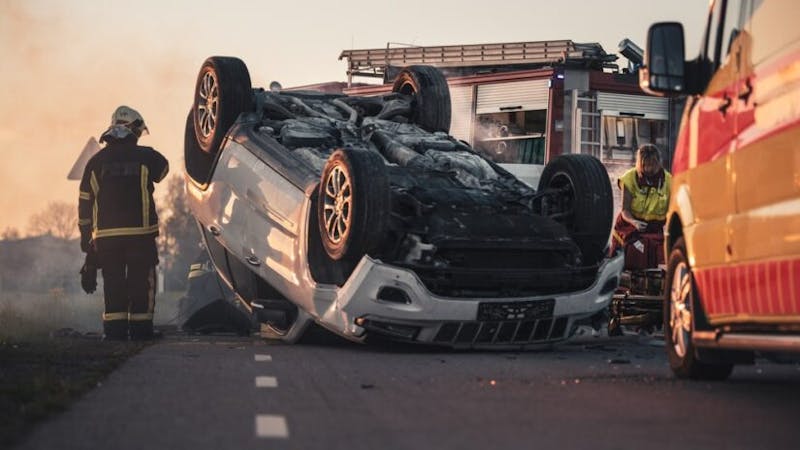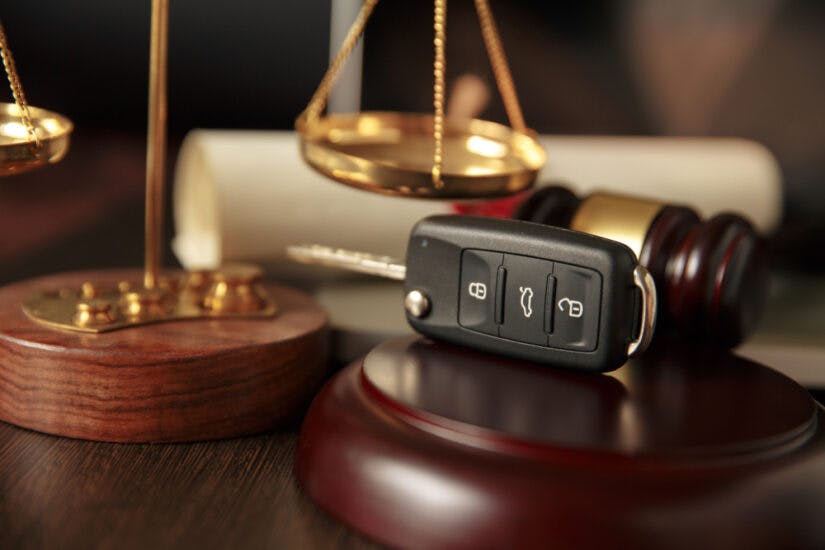
On a normal day, you get into your car and drive to work, drop the kids off at school, run errands, and go about your life. But when you’re in a car accident, everything gets turned upside down.
Car crashes are frightening experiences, but it's even worse when you're stuck footing the bill for your losses when you didn’t cause the accident. Most Georgia residents are left wondering what they’re supposed to do next. Knowing the steps to take can help you move forward and recover fair compensation for your damages.
If you’ve been involved in a car accident in Atlanta and need guidance on how to ensure you’re not left bearing the financial burden alone, it’s crucial to seek the help of a dedicated Atlanta automobile accident lawyer. They can provide the necessary legal support and representation to navigate the complexities of your case and help you secure the compensation you deserve.
Steps to Take After a Car Accident That You Didn’t Cause
In some situations, it may seem cut and dry as to who caused the accident. Still, you’ll want to take a few steps to protect your rights.
Call the Police
After an accident, dial 911. You will want to request medical services to check on anyone who is injured. Even if you don’t appear to have serious wounds, you could have suffered a traumatic brain injury or another internal injury that may not present symptoms until days later.
You’ll want to get your vehicle out of the roadway if it’s still operational, but be sure to snap some photos of the accident before doing so. This will show the positioning of the vehicles after the crash. If it’s not obstructing traffic, leave it where it is until the police arrive.
Once the police are on the scene, they will fill out an accident report. Georgia additionally requires that you notify the police after any accident that results in an injury or death or has property damage worth more than $500. Even if no one has sustained injuries and the crash looks minor, it’s best to get that police report to help confirm your side of the story. Some cities in Georgia require it—plus, your insurance company may also have a requirement in your contract.
Collect Evidence and Information
Even though the police will get information from everyone involved in the accident and any witnesses, you should also take notes. You’ll want to exchange insurance and contact information with the other driver and get any witness contacts that you can. Take photos of everything, including the vehicles as they are positioned after the crash and damages. Try to show the weather, road conditions, or anything else that may seem relevant.
Since the at-fault driver must report the car accident to their insurance company, you will have proof in the event they choose to disregard the law. This information can also help you if you file a personal injury case with the negligent driver’s insurance company.
Notify Your Own Insurance Company
Many people are surprised to learn that most auto insurance policies require you to notify them of any collision, regardless of how minor it may be. It doesn’t matter if it wasn’t your fault. Notifying your insurer protects you in the event the other driver’s insurer tries to deny responsibility for the accident.
Essentially, you may need your insurance company to help you out when the other driver’s insurer offers too low a settlement amount, tries to blame you for the accident, or completely denies your claim. When you’re in a car accident that isn’t your fault, one of the best things you can do is speak with a car accident attorney who can help you work with insurers.
Accept Medical Care
On the accident scene, you should have paramedics examine you for any injuries. If you’re severely injured, they’ll load you into the ambulance and transport you to the hospital. However, even if all seems fine after getting checked out by the paramedics, go see a doctor as soon as you can. You may have injuries that aren’t urgent but will still warrant treatment.
Medical records documenting your injuries are important in car accident cases. They show that your injuries exist and that you are seeking care for them. It will also help you recover the compensation you need for treating the injuries you suffered at the hands of someone else’s carelessness.

What Georgia’s Fault State Means for Car Accident Victims
In Georgia, auto insurance claims are subject to fault. If you get hurt in a car accident because of someone else’s negligence, you have several options to recover compensation for your damages and injuries. You can file a claim with your own insurance company, file directly with the at-fault driver’s insurer, or file a lawsuit.
However, Georgia also uses a modified comparative fault rule, which may reduce or even eliminate your option for recovering damages if you are deemed partly or mostly at fault for the accident. This is why many people in Georgia seek legal representation from a personal injury attorney after car accidents. It’s quite common to see an at-fault driver’s insurance company turn the tables on the accident victim in an attempt to pay them the bare minimum or even nothing at all.
Imagine you were going through an intersection and you were hit by a driver who ran the stop sign. However, you were also going 10 miles per hour above the posted speed limit. Insurance may determine that the other driver was 90% at fault while you were 10% at fault for speeding. If your damages are $30,000, you will only receive $27,000, which is the value of your damages minus the 10% of the fault that was assigned to you.
Essentially, this example shows why you will want a car accident attorney. Insurance companies will often use these tactics in negotiations to decrease settlement offers.
Speak to a Car Accident Lawyer
The last step to take after a car accident that wasn’t your fault is to talk to a car accident attorney. The Pendergrass Law Firm is a great place to start for a free initial consultation.


